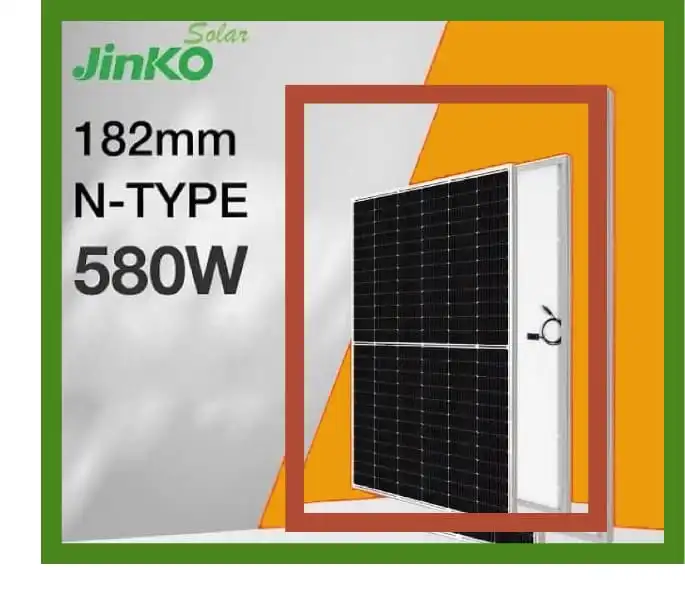solar panel setup for-1-ton AC
solar panel setup for a 1-ton AC in Pakistan, organized by headings.
Solar Panels
Solar panels are the cornerstone of any solar energy system. For a 1-ton AC unit, typically requiring about 900 to 1200 watts for optimal operation, you will need around 3-4 solar panels, depending on their efficiency and wattage.
In Pakistan, solar panels come in various types, including monocrystalline, polycrystalline, and thin-film. Monocrystalline panels are more efficient and space-saving but come at a higher price, generally ranging from PKR 15,000 to PKR 25,000 per panel. Polycrystalline panels are slightly less efficient but are usually more affordable.
The selection of panels should take into account the average sunlight hours in your area, which generally range from 4 to 6 hours per day. This will influence the total number of panels needed to ensure that your system can generate sufficient power throughout the day.
Installation site factors, such as roof orientation, shading from trees or buildings, and panel tilt, also play a significant role in energy production. A proper installation will ensure that the panels receive maximum sunlight exposure, thus increasing their efficiency.
Additionally, when selecting solar panels, it’s important to consider warranties and durability, especially given Pakistan’s diverse climate, which can range from extreme heat to heavy rainfall. Investing in high-quality panels will ensure long-term reliability and performance.
Inverter
The inverter is a crucial component of the solar system, converting the direct current (DC) generated by the solar panels into alternating current (AC), which is used by your home appliances, including the AC unit.
In Pakistan, the cost of inverters typically ranges from PKR 30,000 to PKR 60,000, depending on the brand and capacity. Choosing the right inverter is vital for the efficiency and performance of your solar power system. You may opt for a string inverter, microinverters, or hybrid inverters, depending on your specific needs.
A string inverter is the most common type for residential installations, connecting multiple solar panels in series. However, if your panels will experience varying amounts of sunlight (due to shading, for example), microinverters may be a better choice, as they optimize the output of each panel individually.
It’s also essential to consider the inverter’s lifespan, warranty, and service support, as these can impact your system’s long-term performance. Investing in a reliable inverter will ensure efficient power conversion and safeguard your solar system against potential electrical issues.
Installation
Proper installation of your solar power system is critical to its performance and longevity. In Pakistan, installation costs can range from PKR 15,000 to PKR 30,000, depending on the complexity of the installation and local labor rates.
Choosing a reputable installation company is essential. Look for providers with a proven track record, good reviews, and relevant certifications. A professional installation will ensure that all components are correctly mounted and wired, maximizing the system’s efficiency and safety.
Installation also involves assessing the best location for the solar panels. Factors such as roof orientation, tilt, and potential shading from nearby structures must be considered. A south-facing roof typically captures the most sunlight throughout the day, while an appropriate tilt angle can further enhance solar energy capture.
Moreover, the installation process includes obtaining necessary permits and ensuring compliance with local regulations, which can vary by region. A reliable installer will handle these aspects, making the process smoother for you.
Additional Equipment
In addition to solar panels and inverters, there are other essential components and equipment to consider for a complete solar power system. These may include mounting hardware, batteries (if opting for a battery backup system), and charge controllers.
Mounting hardware is necessary for securely attaching the solar panels to your roof or ground mount. The cost for this equipment can range from PKR 5,000 to PKR 15,000, depending on the type and materials used. Proper mounting ensures the panels are positioned at the optimal angle for sunlight exposure while also providing stability against wind and other environmental factors.
If you decide to go off-grid or want backup power during outages, batteries become essential. They store excess energy generated during the day for use at night or during cloudy periods. In Pakistan, battery prices range from PKR 20,000 to PKR 50,000 each, and the choice of battery type (lead-acid, lithium-ion, etc.) will affect both cost and performance.
Finally, charge controllers regulate the voltage and current coming from the solar panels to the batteries, preventing overcharging and ensuring longevity. Considering these additional components is essential for a complete and efficient solar setup.
Total Estimated Cost
The total estimated cost for setting up a solar panel system to support a 1-ton AC in Pakistan can range significantly based on the quality of components and installation complexity. The overall price can vary from approximately PKR 90,000 to PKR 250,000.
On the lower end, if you choose more affordable components and minimal installation work, your total costs could be around PKR 90,000 to PKR 150,000. This would typically include basic solar panels, a standard inverter, and basic mounting hardware. However, this may lead to compromised efficiency and longevity of the system.
On the higher end, investing in high-quality solar panels, a robust inverter, and professional installation may bring the total to PKR 150,000 to PKR 250,000. This investment not only ensures better performance and reliability but also provides peace of mind in terms of warranty and support.
When considering the financial aspects of installing a solar power system, it’s essential to evaluate potential savings on electricity bills, as well as any government incentives or rebates available in Pakistan. Over time, these savings can significantly offset the initial investment, making solar energy a cost-effective solution for powering your home and appliances.
